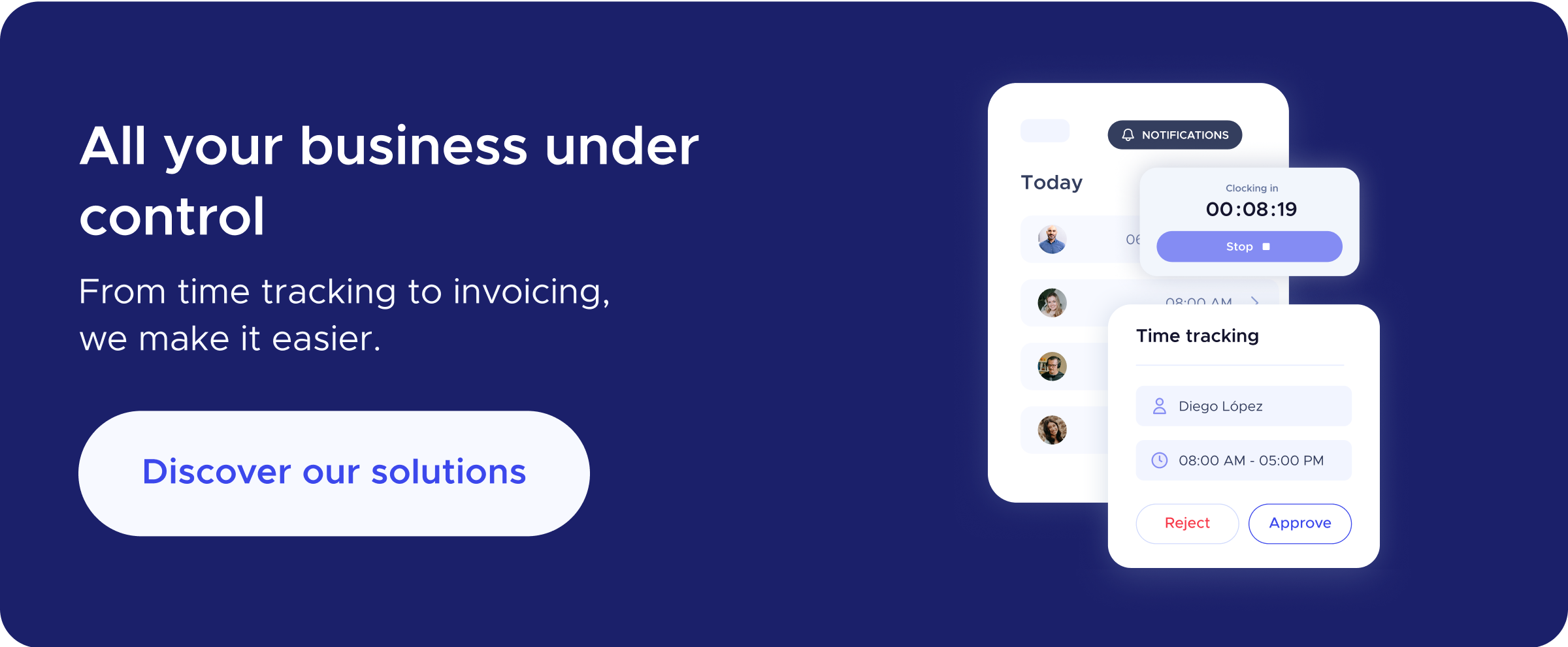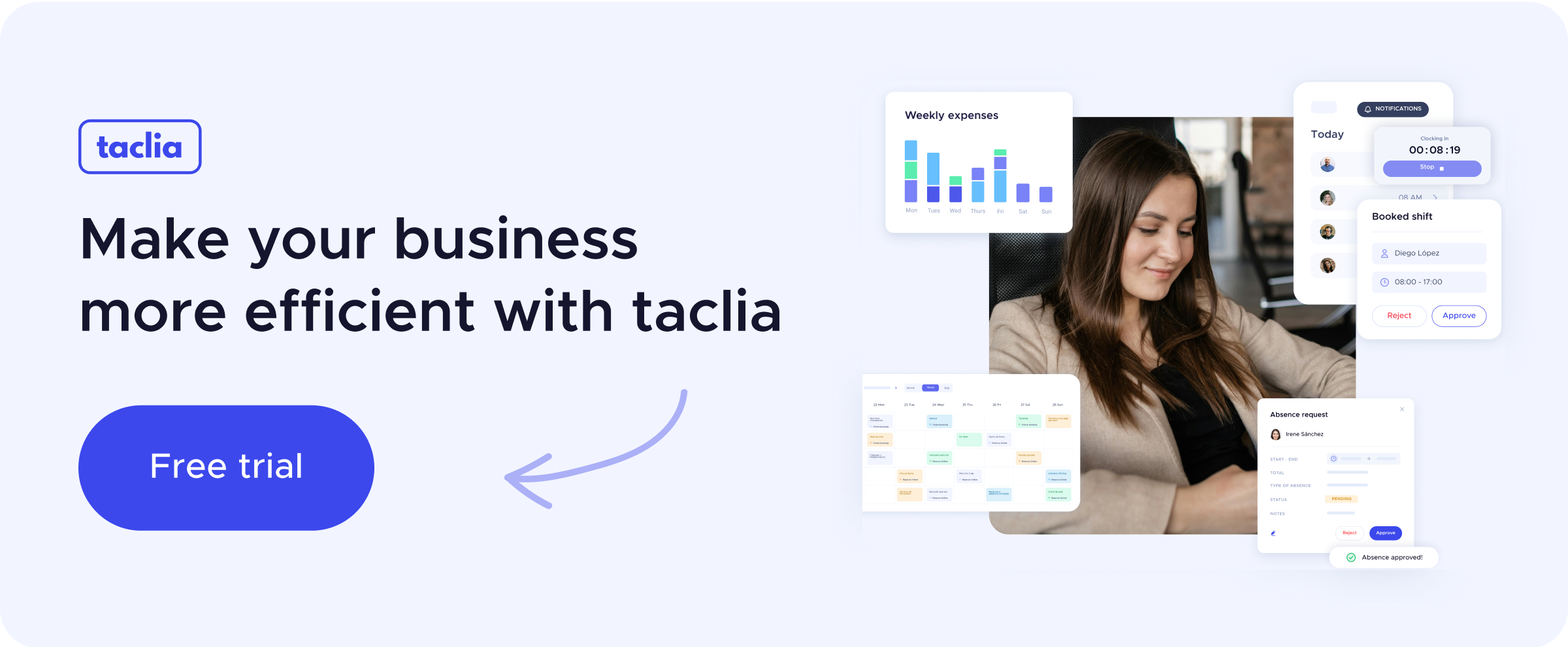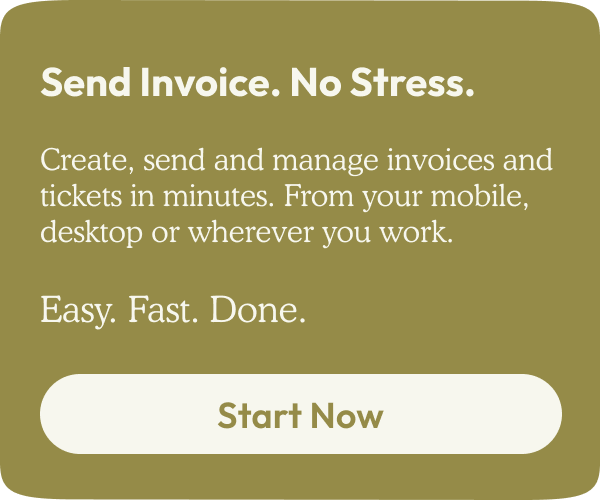10 Types of customers and how to treat them


What is the customer profile?
Each client has different goals or motivations and specific needs to be met when thinking about making a purchase, and we must learn to personalize the sale to be as efficient as possible. Also, as humans, we have different personalities, and these are reflected in our work environment. It is important to know how to detect the qualities and characteristics of each client in order to use sales strategies that best fit the circumstances, resulting in an increase in sales opportunities.
Next, we will propose a list with the ten most common customer typologies and some tips for dealing with each of them. Attention! This article aims to serve as a guideline to help make the sale successful, but it should be noted that it is not a strict pattern of customer typology, and there are likely other strategies that could also work.
1. Distrustful customer
We could say that the distrustful customer is one of the most common customer types and is characterized by doubting the reliability of your company and your product or service. This is demonstrated by the long list of questions they ask before deciding to take the step. They are cautious people who doubt the honesty of your advice or opinions.
How we should treat them
It is crucial to be prepared for their questions. A question posed without an answer or a poorly elaborated response could mean the loss of interest from a potential client. The goal will be to answer all their questions in the most precise and concrete way possible, without beating around the bush.
To gain their credibility, it is advisable to provide data and reliable sources that support your words. Furthermore, honesty will play a crucial role in communication, as the last thing we need is to give them a reason to distrust.
Finally, it would also be beneficial to provide them with an example or a case similar to theirs that has been successful, so they are more likely to trust your words.
How we should not treat them
As mentioned earlier, we should not fuel the doubts of this type of customer. This is why we must leave ambiguity and generalities behind and start using concise data. Ambiguous and general responses will not ease their doubts.

2. Demanding customer
Demanding customers demand the perfect functionality of the product or service. It is a person who knows their rights and demands that they be taken into account. They are not necessarily conflictive customers, but they must be listened to carefully, and those requests that are considered appropriate must be taken into account. They are usually well-informed and determined in what they are interested in, and they want the process to be quick and efficient. It is very likely that they have already informed themselves about your product or service and everything else your company offers.
They are generally interested in having a good product or service, so they will be good payers. Be careful not to make mistakes because, as customers, they will hold companies accountable for any mistakes made. They are serious people who believe they are always right. They do not want to argue; they simply want what they ask for to be carried out.
How we should treat them
We must listen to what they ask for and evaluate if it is feasible or not. It is crucial to negotiate assertively and courteously. The safest option is to use the traditional technique: Listen to what the customer wants, ask if they have any doubts (if so, resolve them), make an offer, reach an agreement, and close the sale without pressure. It is better not to argue with these types of customers; it is better to listen to their arguments and propose a new offer trying to reach an agreement that satisfies both parties. Offer them your best products and services, make proposals, surprise them!
A piece of advice: listen carefully to all the proposals the customer makes; many times, they can help you innovate and thrive in your business.
How we should not treat them
Do not go predisposed to argue; be patient and know how to listen. Avoid arguments; they will only convince the customer more of their reasons and make them less likely to accept new proposals. If you cannot provide what they are asking for, be honest; make it clear what you can offer them, and if they do not agree, let them go, do not insist.
3. Impatient customer
These customers tend to resemble the demanding customer described above, but the difference is that they usually demand speed. They believe that their urgency will automatically become yours and will demand priority over other customers, even asking to omit certain steps in the process. They do not like to wait too long for what they ask for, and in general, their demands will not stop once they achieve their goal; new requirements that require immediacy will emerge. They usually do not respect deadlines, and if you have never dealt with an impatient customer, you will likely see them asking "how much longer" before the agreed date.
How we should treat them
It is crucial to have a defined strategy and have a very courteous protocol to stand firm when necessary. This customer does not respond to reason, but it is important to avoid confrontation and make them see that they are not a priority over other customers and that their product or service requires certain processes for it to be satisfactory, processes that cannot be skipped.
How we should not treat them
Don't use ambiguous answers; be direct.
Don't agree with him when he doesn't, or his schedule will never cease.
Try not to let your answers leave him with doubts or give him reason to be nervous or worried.

4. Aggressive customer
This profile is usually confrontational. We could say that this is undoubtedly the worst type we can encounter. They are bad-tempered people who do not accept a "no" for an answer. They will seek an argument over anything they consider inappropriate, even if it is not an actual mistake. Most of the time, they will be disrespectful; they may even be offensive.
How we should treat them
It is essential to maintain composure and resist the temptation to respond rudely to their offenses. The best approach is to try to handle the situation with respect and a lot of patience. Listen to them and explain well how you think your product or service can help them and stand firm using assertiveness at all times. Be polite and courteous; it will be more challenging to end up in a heated argument.
How we should not treat them
Don't argue! Stay assertive and don't be rude, they can use it against you.
5. Undecided customer
An indecisive customer is one who delays their purchase because they cannot decide whether or not to make it. They usually ask many questions and tend to ask the same questions several times. They often have doubts about very specific things and will listen to all your explanations attentively. This type of customer takes their time and does not like to be pressured to make a decision.
How we should treat them
Try to convey confidence with your words, show them why they should make their purchase and what the advantages of your product or service are. Listen to all their doubts and be patient; you will probably have to answer the same question several times, and if that happens, it is best to find another way to formulate your answer until they are convinced, as otherwise, they will continue to hesitate.
How we should not treat them
Do not pressure them; give them time to weigh the pros and cons of your offer. Also, do not give them ambiguous answers; that will only generate more uncertainty.
Try not to be overwhelmed by their questions; a rude response could result in losing their interest. Remember that they are indecisive, not disrespectful, and they will demand the same level of respect from both sides. Here is an article on the best way to send thank you messages to your customers.

6. Silent customer
This type of customer is characterized, as the name suggests, by their few words. They do not usually discuss your explanations or offers because, in most cases, you will not even hear their opinion. They tend to listen attentively, assess the benefits your offer can bring them, and finally make their decision, without further ado or prior notice. They do not usually ask too many questions, nor do they provide feedback.
How we should treat them
It is crucial to identify early on that they are a silent customer and not wait for them to ask questions. It is essential to have a guide ready to address all the characteristics of the service or product you are trying to sell them.
A piece of advice: explain those concepts that have been confusing for other customers; even if they do not ask, they may appreciate your explanation. You can also ask them if they have any doubts; perhaps you will be lucky, and they will end up voicing their uncertainties. We teach you several techniques to sell your product without being pushy.
Remain open, make yourself available to them, and provide channels of communication through which they can contact you.
How we should not treat them
Do not be overwhelmed by the silence and keep talking; do not be afraid to lead the conversation. Try to lead the situation calmly.
7. Proud customer
These are people with high self-esteem both personally and professionally. They tend to be knowledgeable in their field and believe they know the product and your company well. They tend to react poorly to advice due to their superiority complex. They also seek to control the situation and will try to lead the conversations.
How we should treat them
We must attend to them by providing objective data on the product or service we are offering since, as mentioned, they are qualified individuals who understand the topic.
Once again, we will work assertively and express our opinions confidently. We will listen to their opinion actively and show interest in what they have to say. If we disagree, we will try to offer other solutions that may better suit their needs.
Demand respect. They are people who will demand respect, so it is important to be polite but also demand the same respect from them.
A piece of advice: compliment them. Proud individuals like to receive compliments, so with a compliment, you may create a more pleasant environment.
How we should not treat them
We must avoid cutting off their explanations, showing impatience, or weakness.
It will be pointless to make them see they are wrong; it is better to propose something new.
Regarding the previous advice, it is important not to praise them undeservedly, as this type of customer can usually distinguish between genuine compliments and false appreciation.

8. Busy customer
They are restless individuals who, either due to a lack of organization or because they are genuinely busy, are multitasking while negotiating or making a purchase, so their attention is greatly reduced. Their decisions tend not to be the most accurate because they do not devote enough time to address their needs and clarify what they want. Although they may not realize it, they tend to be inefficient, wasting their time and that of others. It is also possible that agreeing on a date between both parties will become complicated, as they will argue that their schedule is too hectic.
How we should treat them
Be concise, get to the point. Generally, this type of customer tends to have limited time, so make the most of it. It is advisable to use direct questions to focus their attention on the conversation.
In cases where it is impossible to agree on a day or if, no matter how much effort you put in, you cannot capture their attention, it is better to postpone the sale for another occasion, giving them the power to propose a new date. Respecting their time can be the best option.
How we should not treat them
Do not provide unnecessary information; express your ideas in few words and ensure they are appropriate. Make the process short and avoid discussing many details or features.
Do not try to control their schedule or plan their life!
9. Skeptical customer
They are restless individuals who, either due to a lack of organization or because they are genuinely busy, are multitasking while negotiating or making a purchase, so their attention is greatly reduced. Their decisions tend not to be the most accurate because they do not devote enough time to address their needs and clarify what they want. Although they may not realize it, they tend to be inefficient, wasting their time and that of others. It is also possible that agreeing on a date between both parties will become complicated, as they will argue that their schedule is too hectic.
How we should treat them
Be concise, get to the point. Generally, this type of customer tends to have limited time, so make the most of it. It is advisable to use direct questions to focus their attention on the conversation.
In cases where it is impossible to agree on a day or if, no matter how much effort you put in, you cannot capture their attention, it is better to postpone the sale for another occasion, giving them the power to propose a new date. Respecting their time can be the best option.
How we should not treat them
Do not provide unnecessary information; express your ideas in few words and ensure they are appropriate. Make the process short and avoid discussing many details or features.
Do not try to control their schedule or plan their life!

10. Enthusiastic customer
This profile is not conflictive; it just requires patience. They tend to be talkative and usually end up sharing personal stories related to the product or service they are going to purchase. They typically jump from one topic to another and often forget the main purpose of the conversation: the purchase of the product or service. They are repetitive with their arguments.
How we should treat them
Do not try to avoid them; the key is to be patient and listen to them. Give them your opinion; they usually appreciate and are interested in the seller's criteria.
Redirect the conversation back to the sale once you notice it is deviating. Present the main points of the product or service and be concise, adopting a firm attitude and taking control of the situation.
How we should not treat them
Do not get caught up in their isolated conversations; you will waste time and distance yourself from the sale.
Try to be brief; do not let them take all your attention, or you may end up neglecting other customers.
Finally, maintain enthusiasm! If they see that you are bored, they will feel offended, and you will lose their trust.
If you need to digitize your business and have all your documents centralized, discover how taclia can improve your daily management. With our software, you will be able to have a list of your customers with all the relevant information to follow in detail the status of payments and services.
